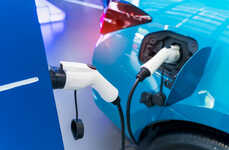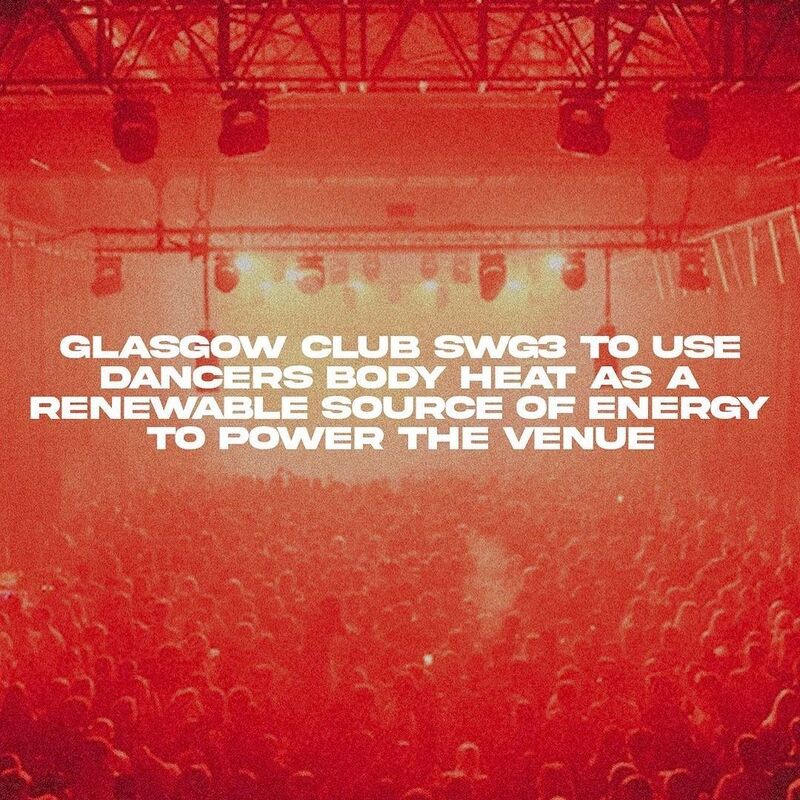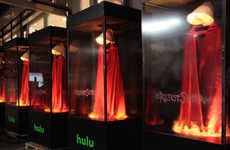
SWG3 Club's BODYHEAT Uses the Heat Generated by Crowds
Laura McQuarrie — September 1, 2021 — Eco
References: instagram & designtaxi
Glasgow’s SWG3 nightclub makes the most of the immense heat generated by the bodies of people in the venue for its BODYHEAT renewable heating and cooling system. The energy generated will be used to run heating and cooling units at the club, as well as the lights and music.
Even before dancing or exercising, the human body emits 100 watts of excess heat and the venue is tapping into this source of power to offer an innovative and sustainable nightlife experience.
According to SWG3, "With this new system in place, we’ll be able to utilize that warmth, consuming minimal electricity and gas on site and in turn minimizing our carbon emissions." It's estimated that the club has the potential to save 70 tonnes of carbon emissions with BODYHEAT.
Even before dancing or exercising, the human body emits 100 watts of excess heat and the venue is tapping into this source of power to offer an innovative and sustainable nightlife experience.
According to SWG3, "With this new system in place, we’ll be able to utilize that warmth, consuming minimal electricity and gas on site and in turn minimizing our carbon emissions." It's estimated that the club has the potential to save 70 tonnes of carbon emissions with BODYHEAT.
Trend Themes
1. Renewable Nightclubs - Nightclubs can generate their own renewable energy through heat generated by the bodies of patrons and decrease carbon emissions.
2. Human-powered Energy Systems - Human body heat can be harnessed for energy production, providing a clean and sustainable source of power for various industries such as hospitality, entertainment, and fitness.
3. Sustainable Nightlife - Incorporating renewable energy sources in nightlife experiences can offer innovation and sustainability, providing unique experiences for patrons while decreasing carbon footprints.
Industry Implications
1. Hospitality - By incorporating renewable energy sources such as heat generated by patrons, hospitality businesses can decrease their carbon footprints while offering innovative experiences.
2. Entertainment - The use of human-generated power in entertainment venues can pave the way for sustainable and unique experiences while reducing carbon emissions.
3. Fitness - Human-generated power can be harnessed in fitness centers to power gym equipment, decreasing reliance on electricity and reducing environmental impact.
1.3
Score
Popularity
Activity
Freshness
























